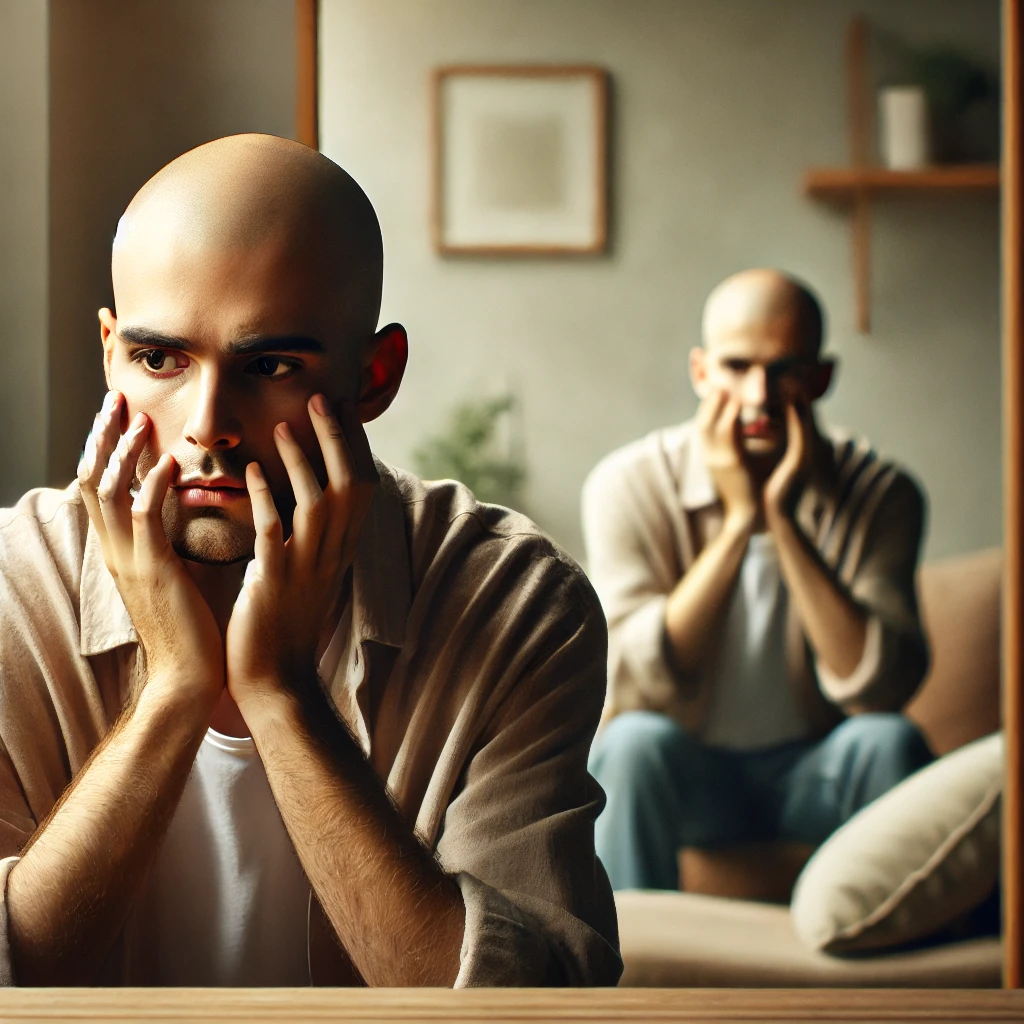
Hair is often seen as a symbol of youth, vitality, and identity. When hair loss begins, it can feel like a piece of your self-image is fading away. For many men and young adults, the impact of balding goes far beyond physical appearance—it can deeply affect mental health.
In this blog, we’ll explore the emotional toll of hair loss and why it’s important to address, especially for those seeking support or ways to cope.
—
The Emotional Impact of Hair Loss
1. Self-Esteem Takes a Blow:
Hair is a defining feature for many, often tied to how we see ourselves and our attractiveness. Losing it can feel like losing a part of who you are, leading to a drop in confidence. This can result in avoiding social situations, skipping photos, or feeling less desirable.
2. Anxiety About Aging:
For younger men, balding can feel like an unexpected sign of aging. Hair is often associated with youth, so losing it can spark worries about looking older than you are. Questions like, “Do I look older than my peers?” or “Will this hurt my professional image?” can add to the stress.
3. Social Stigma and Pressure:
Despite growing conversations about self-acceptance, baldness still carries societal stigma. Many worry about being seen as less fashionable, strong, or vibrant. Media often glorifies thick hair, leaving those with hair loss feeling out of place or inadequate.
4. Depression and Isolation:
The emotional weight of hair loss can lead to more serious mental health challenges, like depression. Some men may withdraw from social circles, romantic relationships, or professional opportunities due to shame or embarrassment. Over time, this can create a barrier to living life fully.
—
How to Cope with Hair Loss
1. Remember You’re Not Alone:
Hair loss is incredibly common. By age 35, about two-thirds of men experience it, and by 50, nearly 85% are affected. Connecting with support groups or online communities can remind you that you’re not alone and provide a sense of belonging.
2. Focus on Overall Wellness:
Hair doesn’t define your worth. Shifting your focus to your strengths, talents, and overall well-being can help rebuild confidence. Whether it’s fitness, hobbies, or career goals, investing in yourself can bring a sense of fulfillment.
3. Explore Your Options:
There’s no “right” way to handle hair loss. Some embrace the bald look, while others explore treatments or cosmetic procedures. The key is to do what feels right for you and take your time in the process of acceptance.
4. Seek Professional Help:
If hair loss is taking a toll on your mental health, talking to a therapist can be incredibly helpful. A mental health professional can guide you through your emotions and help you develop healthy coping strategies.
—
Changing the Narrative Around Hair Loss
It’s time to shift how we talk about hair loss. Many men and young adults suffer in silence, even though balding is a common experience. By opening up conversations—whether through support groups, with professionals, or among friends—we can normalize baldness as just another part of life, not a flaw.
—
Final Thoughts
Whether you’re just starting to notice hair loss or have been dealing with it for years, it’s important to remember that help is available. Confidence isn’t about what’s on your head—it’s about what’s in your heart and mind. By focusing on your strengths and seeking support, you can navigate this challenge and continue to live a fulfilling, confident life.







